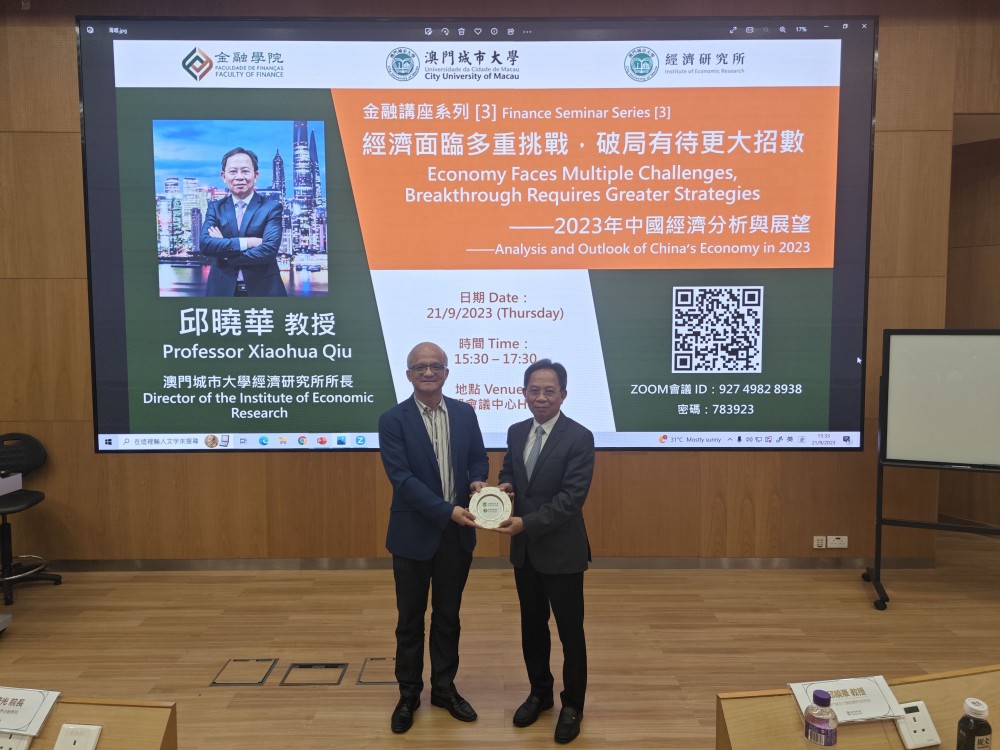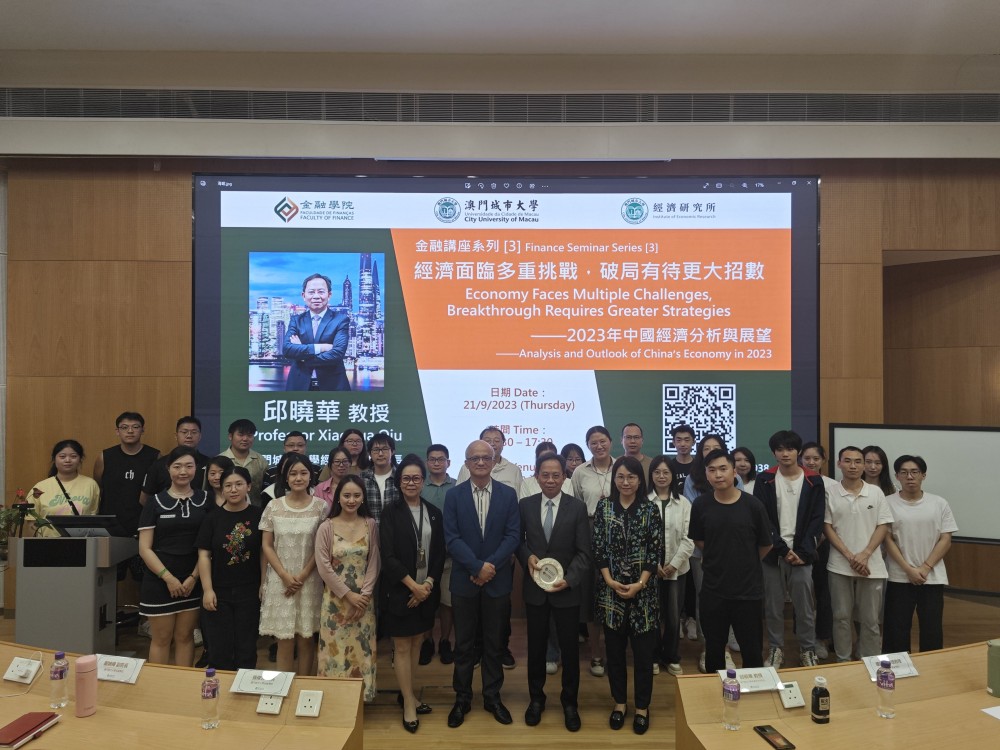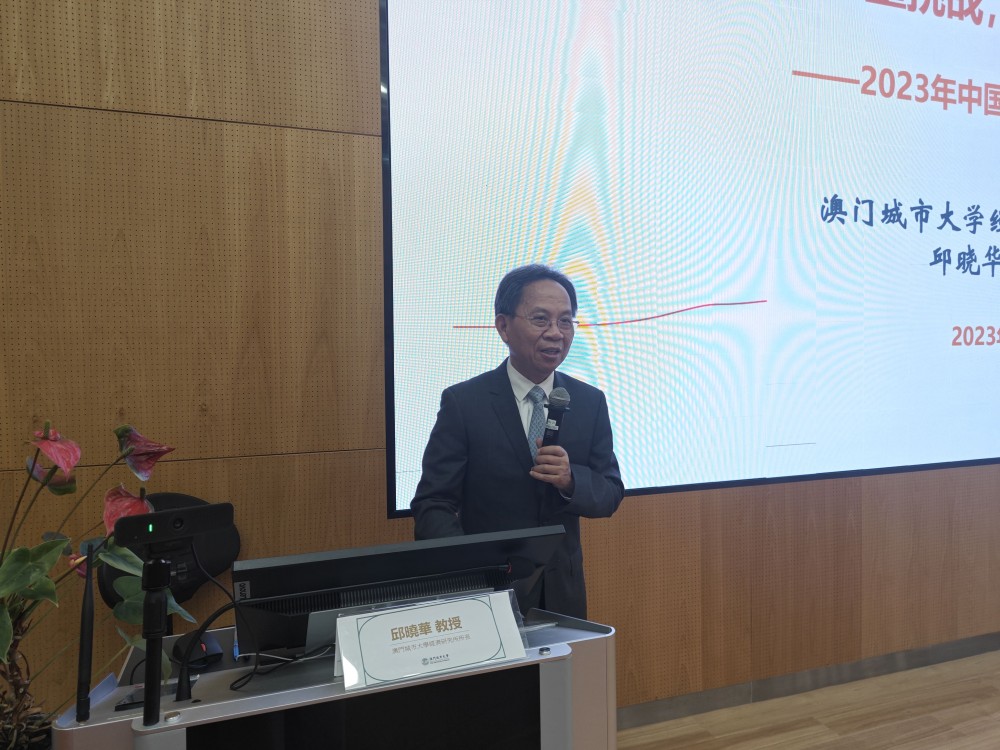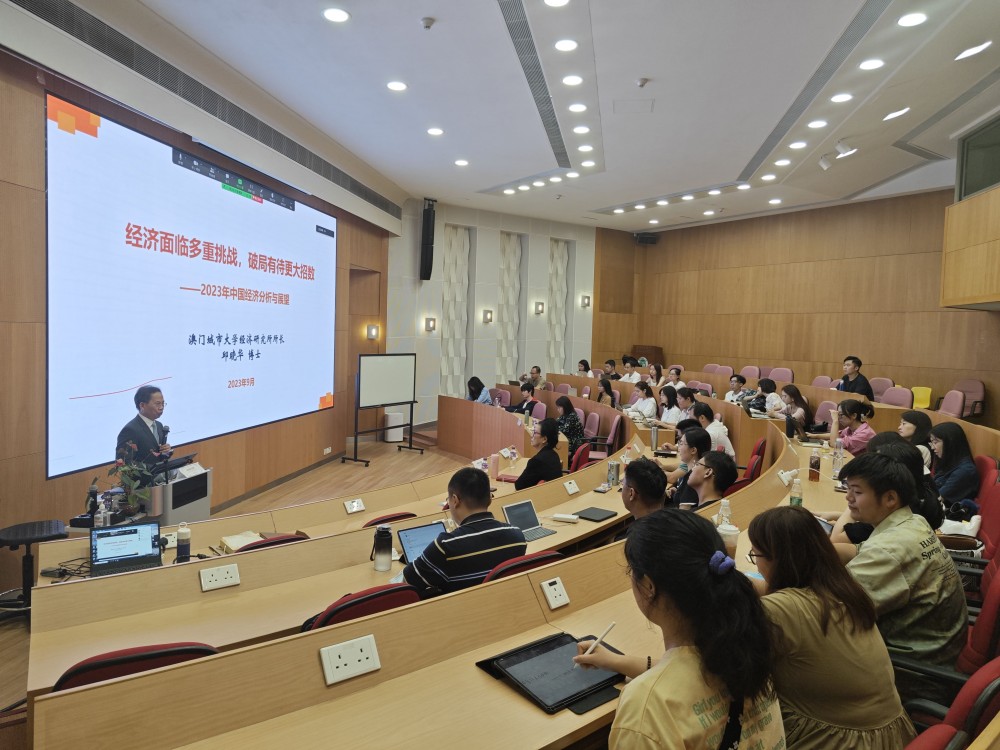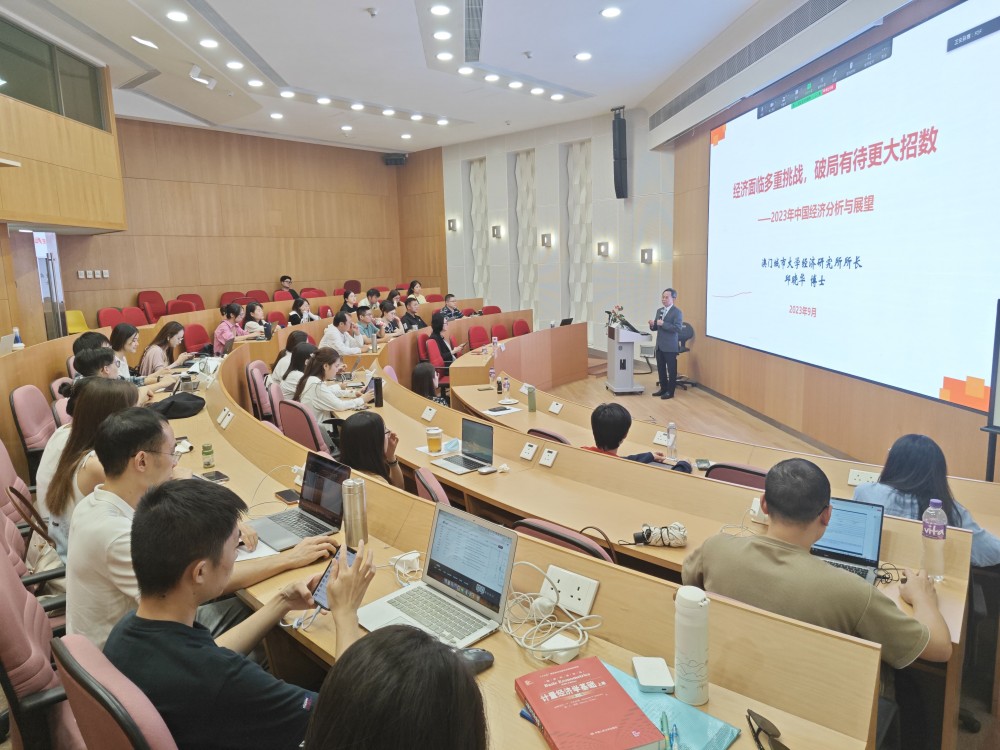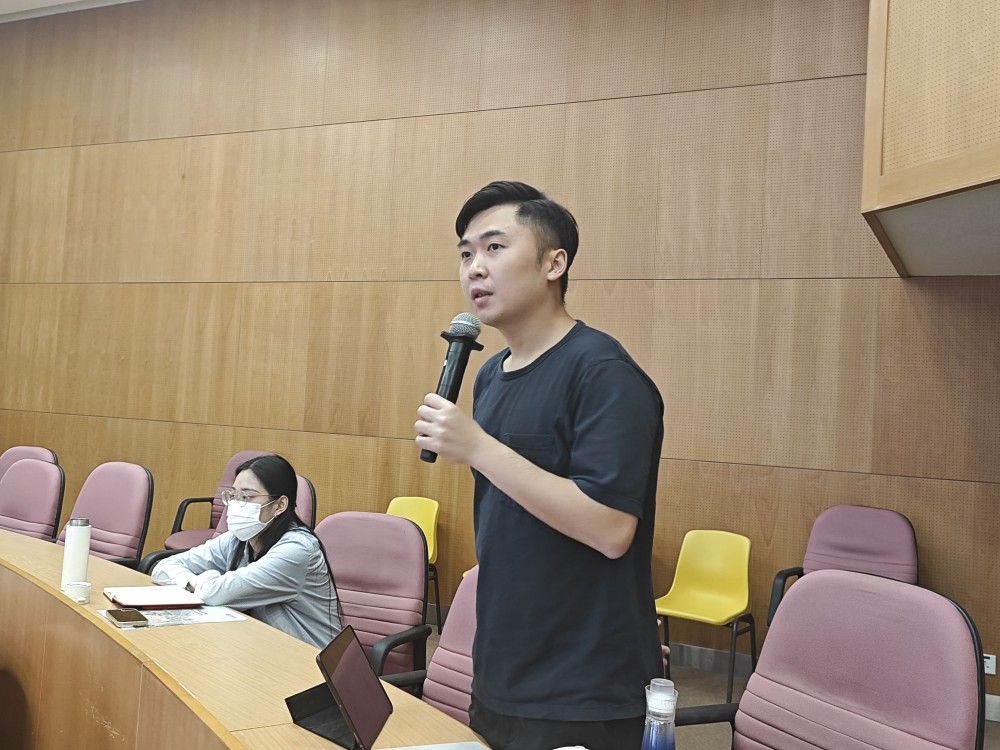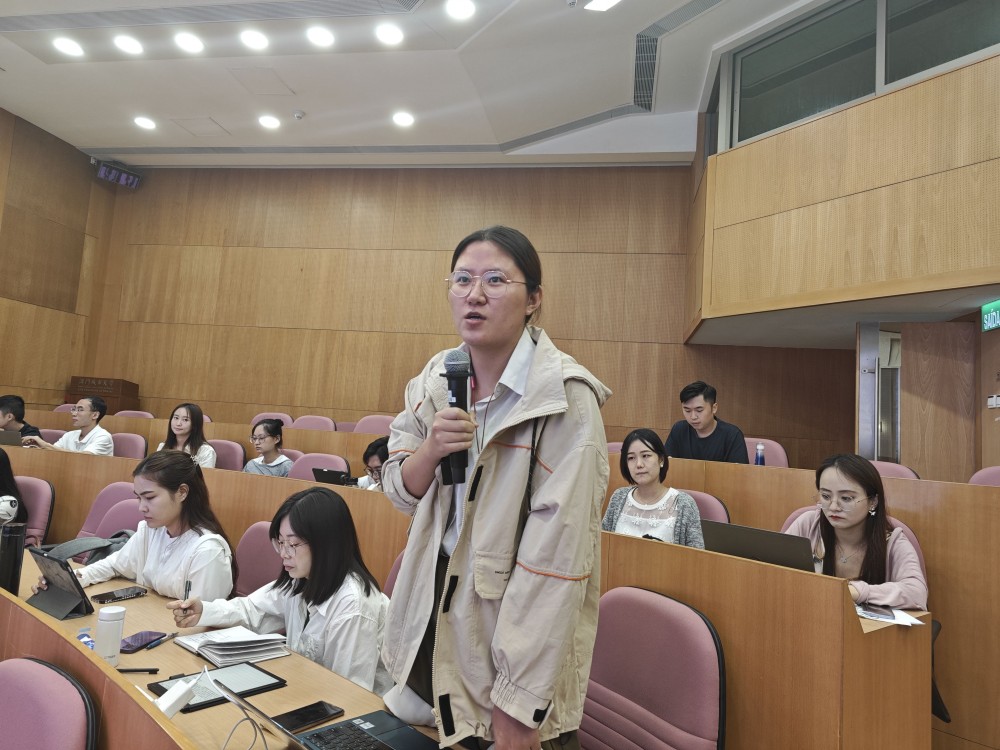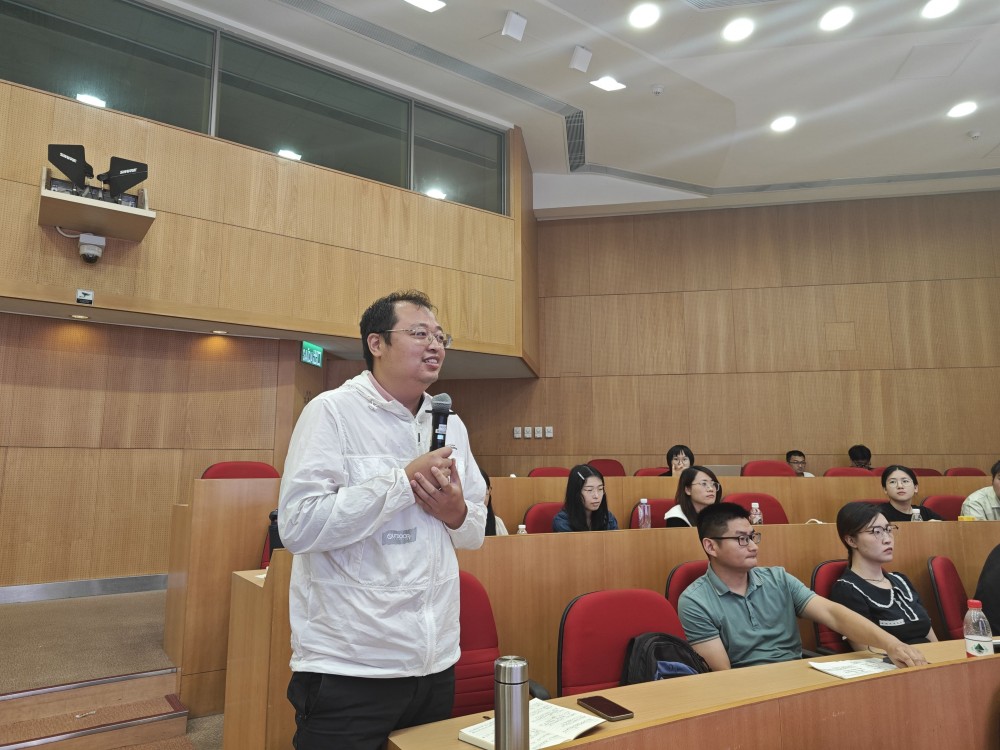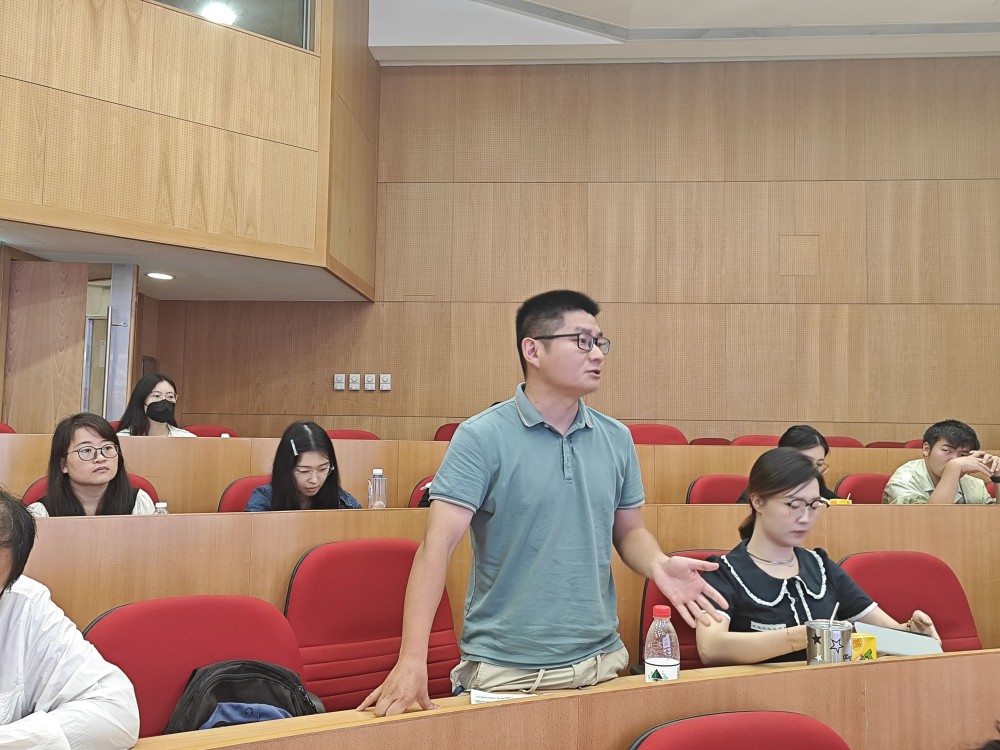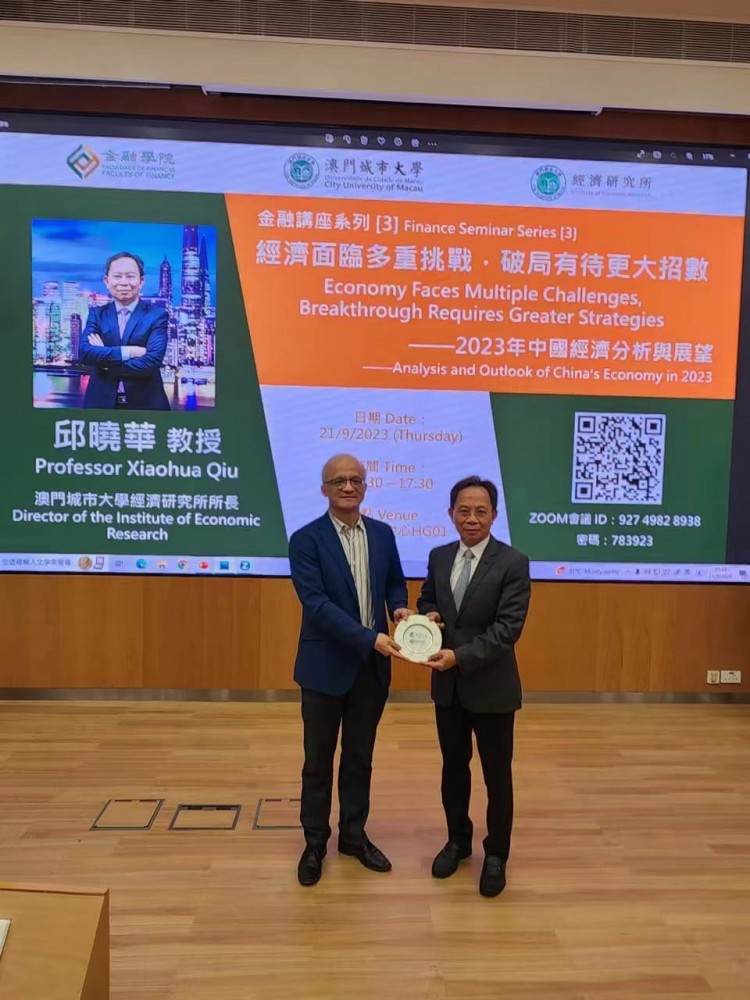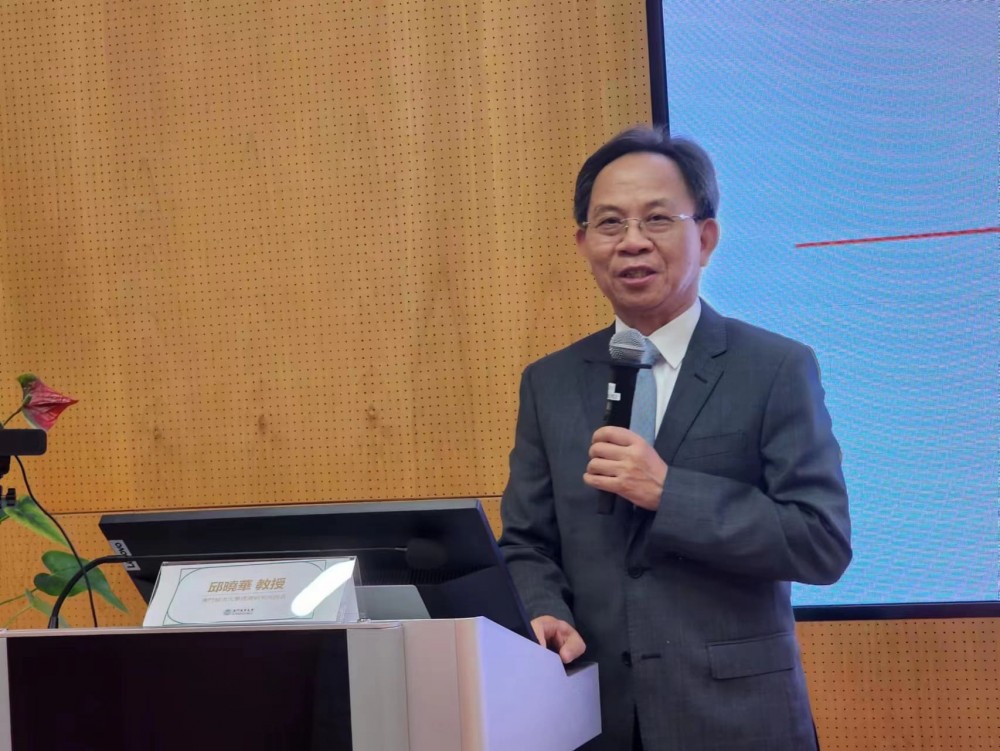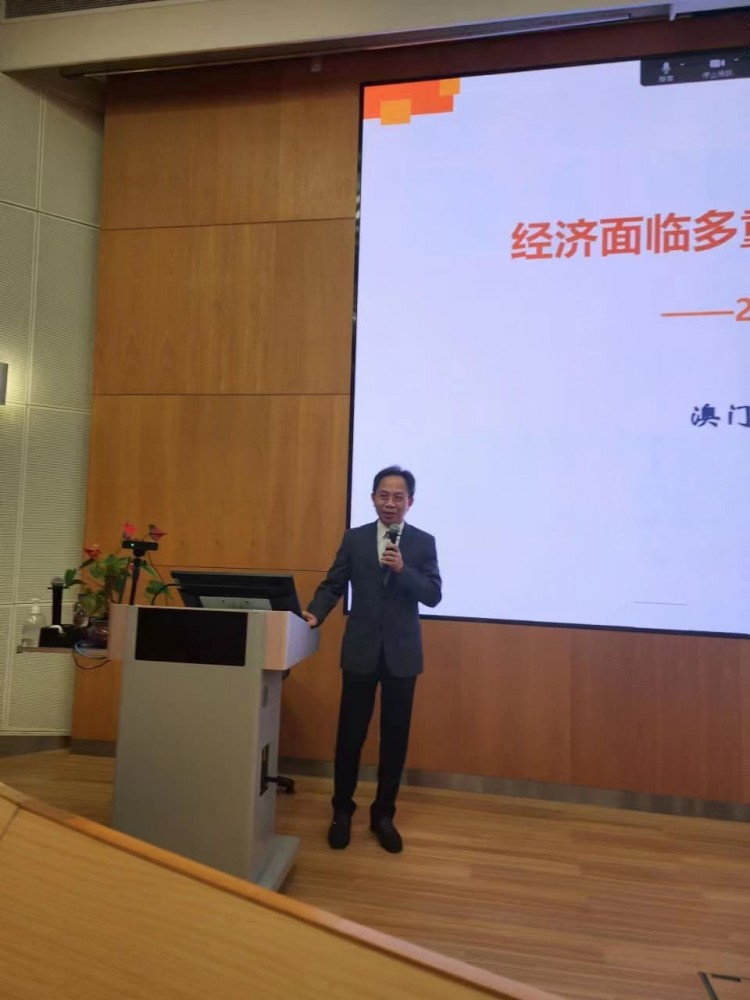On September 21, 2023, the Faculty of Finance at City University of Macau held a series of finance seminars at the Ho Yin Convention Center [3]. The seminar invited Professor Qiu Xiaohua, the Director of the Institute of Economics Research at City University of Macau, as the keynote speaker. The topic of the seminar was "Economy Facing Multiple Challenges: Breakthrough Requires Greater Strategies - China Economic Analysis and Outlook for 2023." The guests in attendance included Dean Adrian Cheung and Associate Dean Eva Khong of Faculty of Finance, City University of Macau, as well as Assistant Professor Kuang Tingyue from the Faculty of Business.
Professor Qiu Xiaohua is an economist and senior statistician from the People's Republic of China. He has served as the Director of the National Bureau of Statistics of the People's Republic of China and as a member of the 10th National Committee of the Chinese People's Political Consultative Conference (CPPCC). He has also held positions as Vice Chairman of the All-China Youth Federation and Deputy Chairman of the All-China Youth Federation for National Institutions and Beijing, as well as a member of the Monetary Policy Committee of the People's Bank of China.
Professor Qiu has served as a part-time professor at various universities, including Xiamen University, University of Science and Technology of China, Xi'an University of Statistics and Economics, Beijing Normal University, Shanghai University of Finance and Economics, and Central Party Faculty of the Communist Party of China. He has also been a researcher at research institutions such as the Financial Research Center of the Chinese Academy of Social Sciences, China Reform Research Society, Research Center of the Ministry of Agriculture, and China Center for Economic Research at Tsinghua University.
His main research areas include macroeconomics, comprehensive statistics, and China's economic reform and development. He has published over 400 research articles on China's economic reform and development. He has authored several books, including "Tracking China's Economic Hotspots," "Analysis of Macro Regulation during Ten Years of Reform," and "China's Path: My Perspective on the Chinese Economy." He has also been involved in drafting documents for the Central Economic Work Conference on multiple occasions.
Professor Qiu provided students with rich market data and information based on his insights into the current domestic and international economic markets. He began by briefly reviewing the economic and market conditions in the first half of 2023 and then discusses the outlook for the second half of the year. He mentioned that at the Central Economic Work Conference at the end of 2021, three major pressures facing the domestic economy were highlighted: "contracting demand, supply shocks, and weakening expectations." During the period of severe pandemic impact, fiscal support and loose financing conditions have enabled households and non-financial companies to accumulate significant savings, which helps alleviate the impact of rapidly rising financing costs. High-level US officials have resumed visits to China, and diplomatic conflicts between China and the US have eased somewhat since last year.
In terms of analyzing the economic trend, it is expected that manufacturing investment will maintain certain resilience with the support of policies. Regarding the real estate market, policies such as "recognizing houses but not loans," personal income tax reductions, and lowering interest rates for existing home loans will contribute to a gradual recovery in consumption. The US manufacturing sector is still at a low level, while the service sector and production consumption show short-term resilience, and the labor market supply and demand are tending to balance. From a market judgment perspective, based on historical experience, whenever the fundamentals of the domestic economy weaken, the central bank tends to promote a more accommodative market liquidity. Faced with the pressure of renminbi depreciation, the recent pricing of the central parity rate of the renminbi has been stronger than expected, and some state-owned banks have lowered US dollar deposit rates. The trend of the renminbi exchange rate depends on the domestic economic situation, policy effects, and market participants' confidence.
Regarding the challenges, Professor Qiu believed that the government needs to take significant measures to stabilize the economy. Currently, China is facing multiple risk challenges, one of which is that the real estate industry is still in a period of deep adjustment and has increased fiscal and financial risks. Real estate risks are shifting towards high-quality leading private real estate enterprises, many of which are facing debt default issues, leading to risk exposure in non-bank financial institutions such as trusts. In addition, foreign trade and foreign investment have declined significantly, and foreign investment in Chinese stocks and bonds remains weak. Insufficient consumer confidence and sluggish private investment are also among the current challenges. Local government debt burden is heavy, and default risks should not be underestimated, especially the impact of credit default by urban investment and construction companies on the market.
Although our country's economy is recovering, it is currently going through a crucial period of transformation and upgrading, in addition to the impact of the initial outbreak of the pandemic. Our economy is facing internal challenges with a lack of microeconomic vitality. This is reflected in the low investment by private enterprises, weakening expectations of foreign enterprises, high local government debt, and sluggish consumer spending, resulting in insufficient aggregate demand that hampers rapid economic recovery. Therefore, it is crucial to restore the microeconomic foundation, activate microeconomic entities, and prevent further economic decline.
The recommendation is for the government to implement measures to deepen reform and opening up, create a better business environment, and stimulate market vitality. Additionally, the government, especially the central government, has the advantage of having comprehensive tools and sufficient resources. By empowering the market through policy measures, businesses and the public can be facilitated, enabling economic entities to have stronger development capabilities and better conditions for investment and consumption.
Among these measures, issuing special government bonds is an important initiative that can support consumption and investment, increase demand, and stabilize the economy. Despite the significant debt pressure on local governments, the central government still has ample room to issue bonds. Therefore, the central government should play a more significant role and exert greater influence. One important consideration is to issue stable economic special government bonds through legislative procedures, with an initial scale of around 3 trillion RMB and a maturity period of 30 years. The recommendation is to stimulate consumption and investment through the issuance of special government bonds, resolve local debt issues, improve regulations and the capital market, activate microeconomic entities, and strengthen reform and opening up. These measures can help stabilize the Chinese economy. The implementation of these measures requires government support and guidance for the economy, as well as active participation from the market and innovative development from businesses. Stabilizing the economy requires a comprehensive, long-term governance strategy. The government should work together with all parties involved to ensure the sustainable development of the economy.




